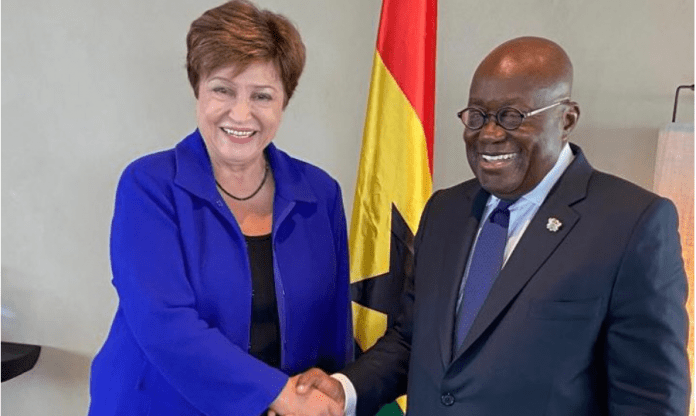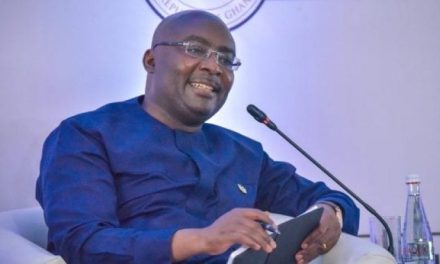
IMF Board Approves Ghana’s Programme Request For $3bn Bailout2 min read

The Executive Board of the International Monetary Fund (IMF) has granted approval for Ghana’s $3 billion bailout request, aimed at revitalizing the country’s struggling economy.
The decision was made during the Executive Board’s meeting held on Wednesday, following Ghana’s receipt of financing assurances from the Paris Club.
International media giants–Reuters and Bloomberg– reported that the approval of the three-year extended credit facility for Ghana has been confirmed by several sources familiar with the matter.
The International Monetary Fund will hold a virtual press conference on Thursday, May 18 to give further details on the outcome of the IMF Executive Board meeting on Ghana’s bailout request.
Last Friday, IMF Managing Director, Kristalina Georgieva said Ghana’s official creditors had provided the necessary financing assurances for the IMF Executive Board to look at signing off on the loan.
“We expect a deal on Wednesday. With the disbursement, there is going to be $600 million as a first tranche just immediately after the approval,” Minister of State at the Finance Ministry, Mohammed Amin Adam said.
He said a second tranche of $600 million is expected to be approved after a successful first review of the programme, sometime in November or December, with the rest disbursed in equal tranches of $360 million after semi-annual reviews.
The funds will boost Ghana’s coffers and help it work towards the target of foreign reserves amounting to the equivalent of three months of imports by 2026, he said.
On December 12, 2022, the IMF reached a staff-level agreement with Ghanaian authorities on a new arrangement under the Extended Credit Facility.
Ghana’s worsening debt situation forced gov’t to IMF
The government had earlier explained that it sought financial assistance from the International Monetary Fund due to various factors such as Ghana’s alarming debt situation, Covid-19 pandemic, adverse effects of the Russia-Ukraine war, the banking sector clean-up, and the energy sector’s excess capacity payments.
While speaking at the launch of two new high-level information technology programmes at Accra Business School at Baatson in Accra in July 2022, Vice President, Dr. Mahamudu Bawumia, acknowledged that the government faced limited options for generating sufficient revenue amid the worsening economic challenges, which ultimately led to the decision to seek support from the IMF.


















